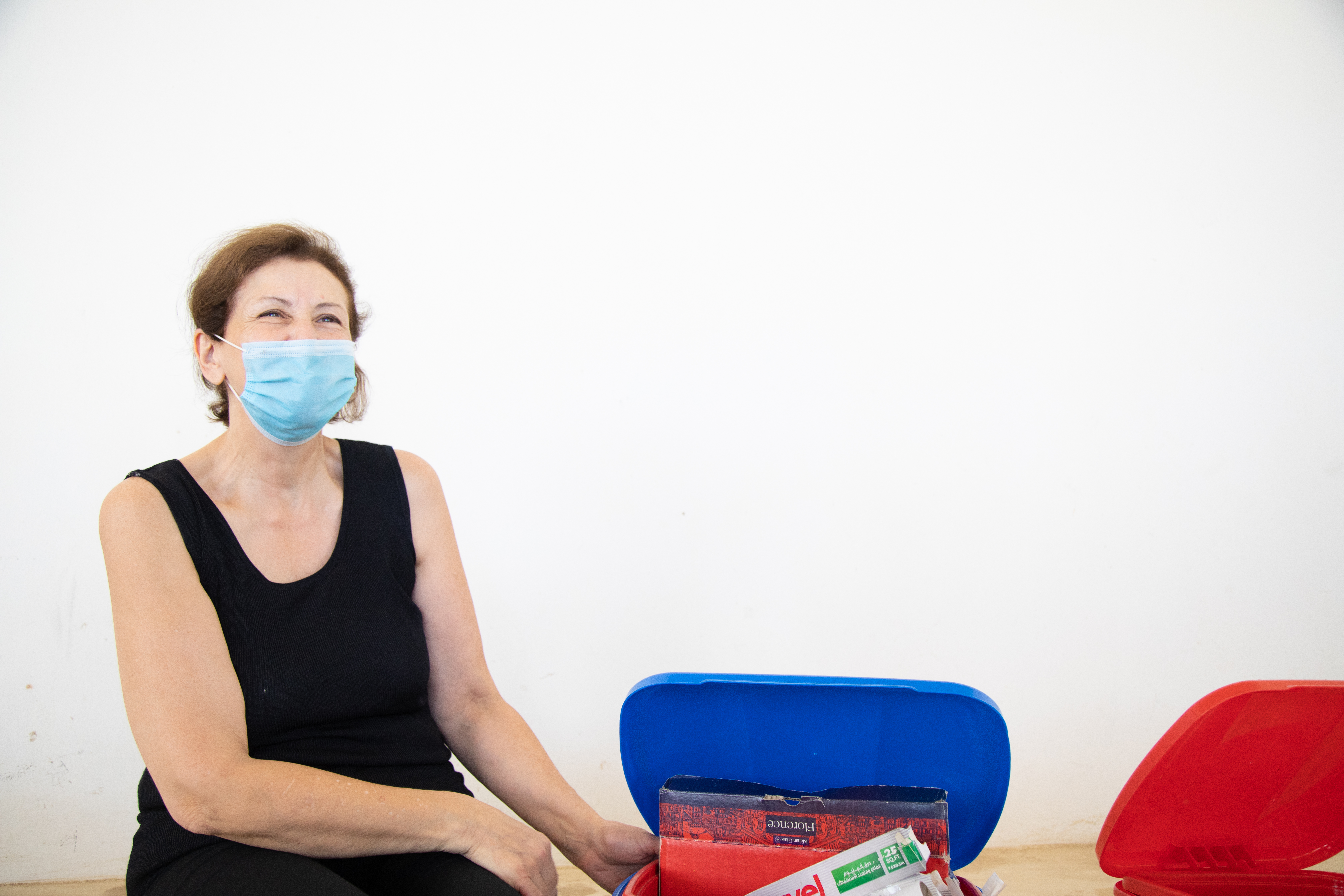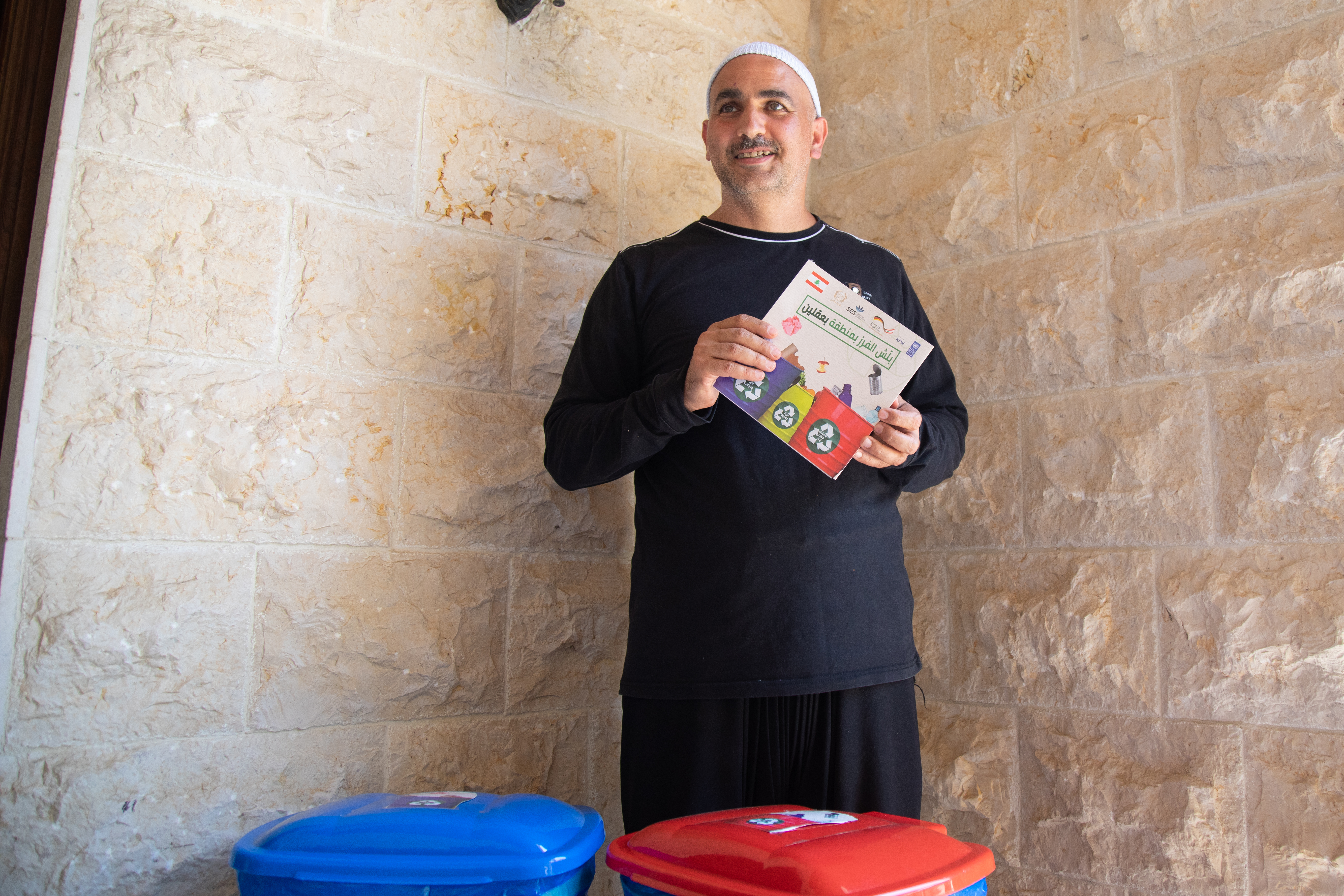By Ornella Najem, Communications Officer, UNDP Lebanon | Photo credit: UNDP Lebanon/ Rana Sweidan
Hamana & Baaqline going green
September 13, 2021
Mobilized, engaged, and committed to start sorting from their homes and stores, local communities in partnership with local authorities and civil society groups in Baaqline and Hamana are now motivated to green their towns and pave the path towards a cleaner and healthier future.
Lebanon has been suffering from a garbage crisis since 2015. The capacity to manage solid waste – already compromised prior to the current crisis - is facing additional strain amid the aggravating socio-economic situation.
From haphazard dumping to open burning, improper solid waste disposal and collection is causing serious harm on people’s health, degrading the environment, and producing unhygienic conditions and serious air and water pollution across the country.
With the support of UNDP, in partnership with the Government of the United Kingdom and Germany through KfW, more than 3,219 families have received the necessary door to door awareness trainings on sorting from the source and 6,938 sorting bins have been distributed to households, commercial stores, and restaurants. Additionally, the provision of street bins and garbage trucks have facilitated and organized the process. Through direct coordination with the municipalities, these bins have been placed across all streets and the trucks are going on their rounds regularly to collect the waste.
Mechanisms for Stability and Local Development committees, as well as local volunteers, have been the drivers of this intervention, leading the efforts towards safer waste management within their communities. This participatory and inclusive local-level cooperation is enhancing the trust between municipalities and residents and reducing tension caused by the solid waste management crisis. Collaboration to organize the process is also strengthening intercommunal relationships where the open exchange of expertise and perspectives help ensure the efficiency and sustainability of this initiative.
Creating such an environment that applies the best solid waste management practices unlocks the “wealth in waste” where the collection, sorting, processing, recycling, and upcycling of garbage creates jobs and helps communities achieve a green and sustainable circular economy.

 Locations
Locations









